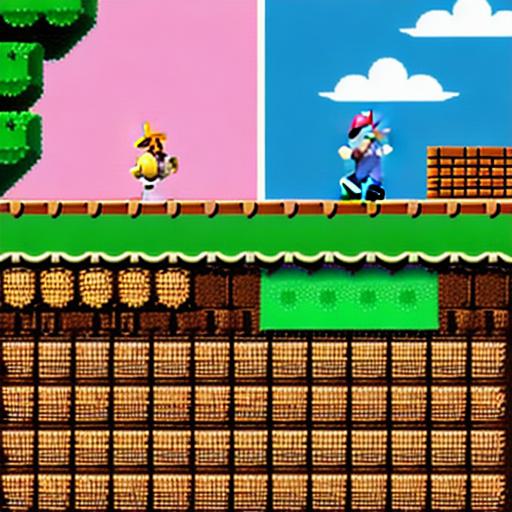Introduction: What is a Game?
In today’s digital age, video games have become an integral part of our lives. From casual mobile games to complex console games, there are countless types of games that people enjoy playing for entertainment and socialization purposes. However, despite the popularity of gaming, the term ‘game’ is often used interchangeably with other terms like ‘video game’, ‘interactive media’, and ‘digital entertainment’. In this article, we will explore what it means to be a game in the context of video games and gaming culture, delving into its various forms, components, and features that make it unique and engaging.
The Evolution of Games: From Board Games to Video Games
Before diving into the meaning of ‘game’ in the context of video games, let us first explore its historical evolution. Games have been a part of human culture for thousands of years, from board games like chess and checkers to card games like poker and blackjack. These early games were designed to test strategy, luck, and mental agility while providing entertainment and social interaction among players.
In the 20th century, with the advent of technology, games took a new form in the form of video games. The first known video game, OXO (also known as noughts and crosses), was created by Alexander S. Douglas in 1952 using a Cambridge University computer called EDSAC. Over the next few decades, video games evolved rapidly, with companies like Atari, Nintendo, and Sega releasing consoles that allowed players to enjoy a wide variety of games, from sports simulators to adventure games, puzzle games, and role-playing games (RPGs).
The Meaning of ‘Game’ in Video Games: The Interactive Experience
Now that we have explored the history of games let us examine what it means to be a game in the context of video games. A game can be defined as an interactive experience that involves rules, challenges, and rewards for players who successfully complete the game. Games can be single-player or multiplayer, depending on the number of participants involved in the gameplay process.
In video games, players interact with a virtual environment by using controllers, keyboards, or other input devices to control their characters or objects within the game world. The objective of the game is usually to achieve a specific goal, such as defeating an enemy, solving a puzzle, or collecting items. Players can earn points, rewards, and achievements for completing tasks within the game, which can be displayed on a leaderboard or shared on social media platforms.
The key components that make up a video game include graphics, sound effects, storyline, gameplay mechanics, and level design. Graphics are responsible for creating an immersive visual experience for the player, while sound effects provide auditory feedback that enhances the overall gameplay experience. The storyline sets the tone for the game and provides context for the player’s actions, while gameplay mechanics determine how players interact with the game world and each other. Level design determines the layout of the game world and the challenges that players must overcome to progress through the game.

Case Studies: Examples of Successful Games in Different Genres
To illustrate the meaning of ‘game’ in video games, let us examine a few successful examples from different genres.
- Super Mario Bros.: This iconic platformer game was released by Nintendo in 1985 and quickly became one of the best-selling video games of all time. Players control the character of Mario as he navigates through levels filled with obstacles, enemies, and power-ups, collecting coins and mushrooms to grow larger and jump higher. The objective of the game is to reach the end of each level and defeat the main antagonist, Bowser. Super Mario Bros. was a huge success due to its addictive gameplay mechanics, colorful graphics, and memorable characters.
- Minecraft: This open-world adventure game was released by Mojang in 2009 and has since become one of the most popular video games of all time. Players can create their own virtual world by placing blocks, building structures, and exploring different biomes. The objective of the game is to survive in the virtual world by gathering resources, building shelter, and fending off hostile mobs. Minecraft was a huge success due to its sandbox gameplay mechanics, creative freedom, and massive online community.
- The Legend of Zelda: This action-adventure RPG game was released by Nintendo in 1986 and has since become one of the most beloved video game franchises of all time.
